Good morning! This is our final Q&A Wednesday of the summer, so if you’ve been saving up questions, today is the day! Our official guest authors are Augusta Scattergood and Karen Romano Young!

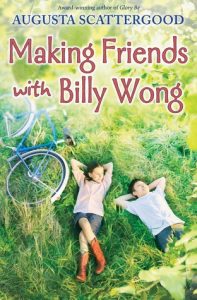


Other authors will probably pop in today as well, so feel free to direct questions directly to Karen and/or Augusta or just ask general questions for anyone to answer.

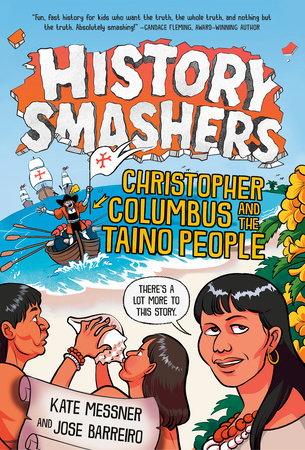
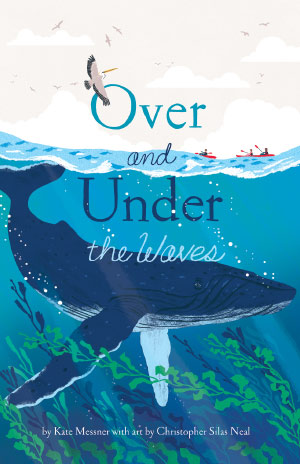
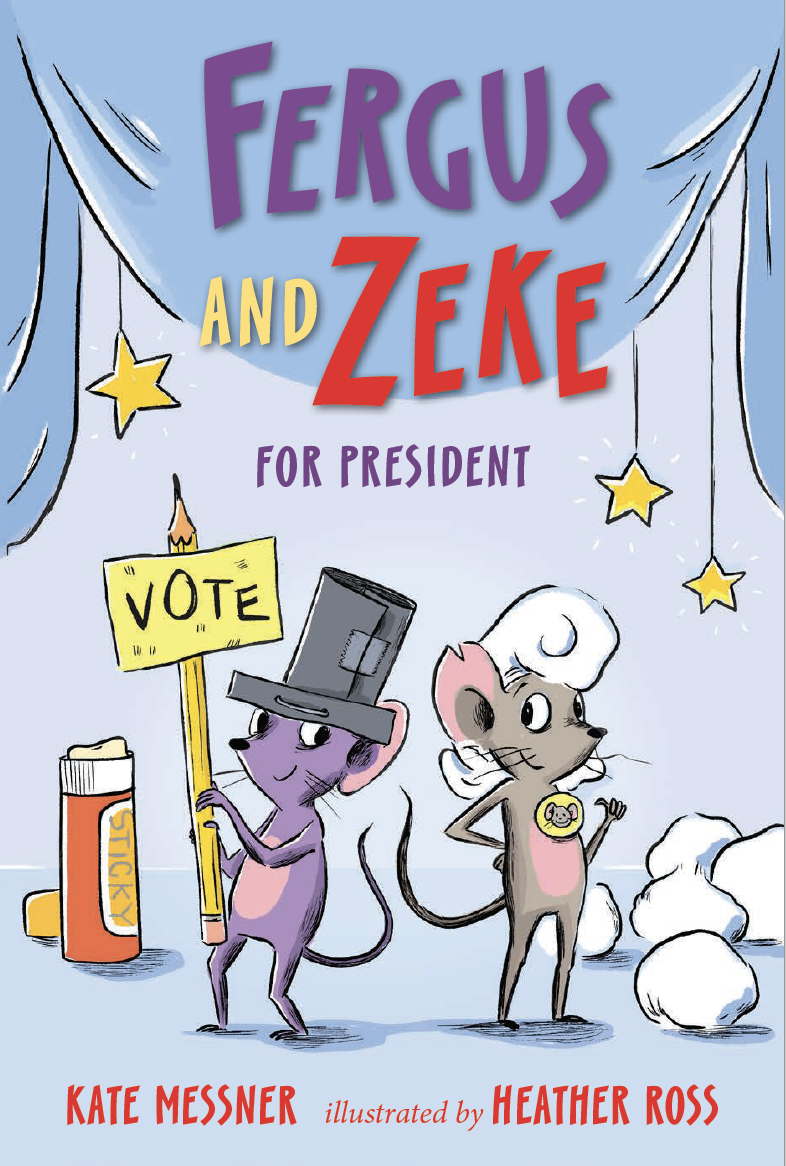
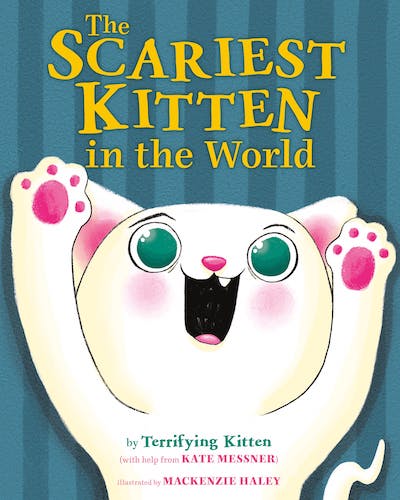
Good morning, Augusta!
No question from me today, but I wanted to write that my (former) students are loving your summer reading book suggestions. I met with a group of them (they formed a summer book club and I was invited – how awesome it that!) that were reading Echo, and they were telling me that they read some of the books that you suggested in our FaceTime visit. Some of the girls in the book club were not in Tina or I’s ELA class, so we showed them your blog.:)
THANK YOU AGAIN for the visit. It was the highlight of the end of June, which is completely awesome because usually the only highlight at the end of June is the end of the school year and summer vacation.
Karen and I are ready for anything! Bring on the questions! We’ll try our best.
Andy, you think that’s not a writing question/ issue but I think it is. Readers are better writers! You have obviously inspired these kids. A summer Book Club. Be still my heart. (Something all you good teachers who love books and reading do.)
Good morning and thank you for sharing your time with us!
My question is pretty general. Since starting to take my writing seriously, I’ve started to wonder what kind of time/money investment would most improve my writing and my manuscript. Clearly Teachers Write is an amazing deal and great support (this is where I met my writing partners), but do you have opinions on what kinds of retreats/conferences/classes have been most helpful for elevating your writing to levels you’d struggle to reach solo? What have been your best experiences, or have you simply achieved greatness on sheer solo determination 😉 ?
I don’t mean to be snarky. When one struggles to figure out how to get better, there is a dark humor about people who seem to be independent geniuses, like Mo Willems and Kate DiCamillo, because I can’t *see* how they built their skills through time. (I hope this makes sense!)
Thank you!
Terry
Terry,
Thanks for asking such a good question. As you’re perhaps aware, I’ve been at this a long time. Lucky for me one of the first conferences I ever attended, SCBWI national, featured a speaker (sorry, I can’t remember who!) who said that this field required a long apprenticeship.
Conferences like SCBWI (local, regional, and national) with its many sessions in which many authors tell their own stories, were helpful in getting me to understand the reality of the situation and to recognize how far I had to go. They also helped me meet other writers, agents, and editors, which was invaluable — and led me to my first writers’ groups. Authors Guild sessions helped me understand the nuts and bolts of contracts. And Harold Underdown’s Purple Crayon site has been invaluable. It is the one thing I have never stopped recommending to new people. Harold knows everything, shares everything, and he won’t make you feel dumb.
Real, hands-on help came from the sessions at SCBWI where you have a mentor read sample pages and respond. Rutgers One on One takes this to a deeper level and is an honor in itself, if you are accepted.
I don’t have my MFA, but I’m a mentor teacher at a low-residency program and I think it’s a valuable experience, because you have guidance while you’re drafting and revising a manuscript for submission. But I think you can get good guidance of that kind in a writers’ group that is carefully organized to respond to your kind of work… some of my early groups didn’t, because other people were writing picture books and I didn’t believe they were the best responders to my novels — plus I felt guilty asking them to read so many words, even if I ended up reading their pbs 18 times.
Craft books helped me a lot: Writing the Break-Out Novel by Donald Maass is good for writing novels in general. Stephen King’s On Writing has made a difference in my life, and every time I reread Strunk and White’s The Elements of Style it kicks me into a higher place.
Ultimately just READING other people’s stuff, for pure enjoyment or with a critical eye, helps me more than anything else.
Thank you for such a detailed response! It’s good to know the things I’ve been doing are on the right track, and see some ideas for what else to try and work on.
Thank you Terry for asking that question. I wanted to know the same thing, but didn’t know how to form the question around what I was thinking.
Thank you Karen for your answer and insight. I love learning new things! Thanks ladies!
Good morning, all! I have been very quiet in the comments this year but have learned SO much and enjoyed each and every post. I’ve been lucky enough to have done TW every summer from the beginning, and it is always a highlight of my year.
My question relates to what I’m currently trying to write. I say trying because while the story swims and swirls in my head, I am having more trouble actually getting it on the page than anything I’ve ever written. It is possibly the best story idea I’ve ever had—and it seems to want to stay up there rather than get on the page. My usual tricks aren’t working so I’d love to hear what you do when in a similar situation.
Thank you,
Oh Sonja! I know! This is going to make you crazy, right? One thing you have to know is that it’s always better in your head. Maybe you already know this and so you’re scared to start putting it on paper because you know it will change. But maybe you can build yourself some stepping stones: write yourself a letter about the story you plan to tell. This is a method I use often when I’m writing, because it’s so hard to keep the drafting/editing parts of my head apart — and the editor just has no place in the drafting room! But she’s sitting there champing at the bit, waiting to rip me, so I appease her with her own pad of paper. On it I write what I want the story to be, and add notes and reminders to myself, and little bits of encouragement, such as: “Don’t worry! Keep on going! It will not suck!” But the letter to myself — or to my editor is my way of solidifying my story… and often leads to writing down portions of it. It’s an outline for someone who doesn’t outline, bullet points or just free-writing about my story… and it leads to writing the story. I keep such a notebook throughout the writing of any book, as a way to keep myself sane, to cheerlead for myself, and most of all to keep the pen on the page. It becomes a much easier matter to just move that pen back to the story draft and keep on going.
I never thought about notes to encourage to myself, I’ll have other people’s quotes up, maybe I should write down why this book needed to be written and what I loved about it in the beginning that made me want to write it.
I think the idea of a notebook like this to go along with the book is fantastic. What a way to keep track of things and to be able to look back on later and say, “I did it!”
If you google “writer notebooks” or something similar, you’ll see how many of us use them – and blog about it! I think Linda Urban, for example, has written about hers.
I use Scrivener software- I’m a big fan!- and that’s where I keep track of all the notes, ideas, research (crucial for historical fiction).
I totally hear you on how hard it is to figure out a story. Still, if it’s something you feel passionately about, you must not let it go.
In love with the idea of the letter and little notes to myself! Thank you!
Good Morning Augusta and Karen,
I just followed you both on goodreads and added your books to my MS library wish list. I’m delighted that Glory B. is in playaway form from my big vendor! So many students are more able to listen to the book that way.
Thanks so much for dropping in today. I second all the questions posed above.
My question:
When you sit down to write are you aiming for an audience or does the writing clearly sort itself for an audience. My current wip I “think” is YA but I’ve had readers that ask….is this MG? YA?
Do you simply write the story and don’t worry about the level/age? Or, do you try to keep the story for an audience? I think Glory B. is a good example of where this question may have come up for you as an author…..or does it come up for both of you all of the time? Too many questions….you get my “wonder”.
I love the recommended craft books above. What do you have that might address my question?
Thanks!
Linda,
This is interesting…and it’s an important question, because I tend to write between ages 10 and 17, so I’ve written in both genres. For me the question is more how old is the main character, and so what issues or situations confront them, and that seems to indicate what the audience would be. It seems to arise organically from the character, whether something is a middle grade book (which can be ages 8 to 12 or 10 to 14) or young adult (12 and up or 14 and up). Either way I’m just writing a novel — and if the content is higher level that’s a reflection of who’s IN the book, not who’s reading it.
Linda- This question has not actually come up for me because I feel very comfortable with middle-grade. All three of my books (well 2 1/2) are squarely middle grade. I was a K-6 school librarian for most of my career (yay for school librarians/ media specialists!) and I loved reading MG most of all.
BUT I have just read two brand new books, which I thought were brilliant on many levels. Lucky Strikes and Wolf Hollow (sorry don’t have the authors handy). To me, they seemed like older middle-grade and on Lucky Strikes, the publisher’s recommended level was 10-18, as I recall. That’s quite a span! So I’d say write it the way it sounds/ seems best for you. The subject matter, the age of your narrator, the language- all influence whether YA or MG, I believe. Ditto what Karen said also. 🙂
Dear Augusta and Karen,
Thanks so much for giving of your time so we can pick your brains. It is so helpful to get this kind of insight and encouragement. I was wondering about your editing process. Do you have a set method you like to follow or does it depend on the novel in how you approach this? How do you keep track of the facts you put into the book that you may need to refer to later on? I’m getting set to edit one of my novels and I think my process could stand some improvement, so any tips would be appreciated.
Thanks and best wishes to you.
Martha,
The notebook I talked about earlier can help me keep all the different balls in the air so that I remember facts as well as details (for example, recently I used library date stamps to show the passage of time in a book, so I jotted down the dates and the pages of my ms to be sure that time was progressing at a consistent enough rate). When I am doing nonfiction I sometimes use Scrivener, a program that you can take notes into and even draft from, although I just use it to organize my research notes.
As for editing, I’ll start by referring to my notebook — the side by side one I keep while I’m writing a draft. I might put out the fires I I note there first, or go back and read through my manuscript and make notes about additional fires. Depending on the situation I’ll tackle those fires head on, until I think, “Okay, this must be reasonably fire-free.” Then I’ll read through the manuscript and find out how wrong I was about that. Sometimes I’ll fix things on the fly while reading, sometimes I’ll make notes on fires to put out in the next pass, sometimes I’ll go for a walk in the woods and cry. 😉 Not even kidding. Eventually I won’t know for sure if something is a problem or not, and that’s when I ask a trusted reader for input. Then I go put out HER fires, if I agree that they’re fires. On and on until I really don’t see anything else to fix. (Sometimes it still gets rejected.)
Wow. This is super great advice. Thanks for sharing!
(Okay, Karen, I’m totally stealing that time stamp idea!)
As for facts to keep track of, I do what my actual Scholastic copyeditor does and make a “fact sheet” with all the relevant dates, names of places and people and pets, etc. I keep that handy. And Scrivener has totally helped me keep up with everything while editing.
I go through my manuscript with a big yellow legal pad and write pages where I think I need to check things, plot points, weird character flops, etc. I have stacks of legal pads, filled with stuff. I actually love the editing part a lot better than the thinking-up-things part.
Good morning Augusta and Karen!
My question is about writing and publishing in general. How do you handle it when, or if, you discover one of your ideas / wip has already been published by an author? I don’t mean plagiarism, just the basic idea. Thanks for your time!
Tracy,
This happens all the time, and it’s so frustrating, isn’t it? I used to work with another writer who said “There are no new ideas under the sun.” But I do think that the idea changes because of who thunk it. This is certainly true with nonfiction. When I see that someone has written on the same topic as me I take a closer look — because it usually turns out that I have a different angle or approach or am even writing on the same topic for a different age group. Another thought it that it’s not necessarily a bad thing, but can be indicative of a real need that my particular story could help fill. With fiction, well, I can only think that a theme or trigger might be common between stories, but that shouldn’t stop you from writing your own version. Is this what you mean?
Yes. Thank you both for the words of encouragement!
Oh my goodness, Tracy. The same exact thing happened to me. I’d been working on my first novel for a while (true confessions, it took almost 10 years for me to write and find a publisher/ agent). Just when I was hitting my stride, a well-received middle-grade novel came out, same time period and the narrator had the EXACT SAME name as mine did! What are the chances? Well, changing the name was easy. I found a better name and I never actually loved her original name anyhow.
And when I read the book, I realized there were many differences, much as Karen noted above. So I’d agree with her advice. There are so many books written that sound similar but aren’t. Now, a different side of that (which happened to me too) is that an editor might reject a book, saying they just published something similar. But maybe that means the topic is worthy of publication! That a different editor will love it.